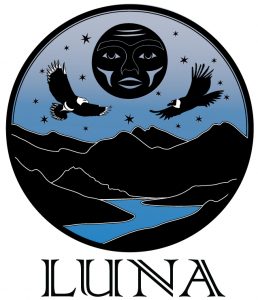Projects & Programs
LUNA
 By the light of the moon, we are Lighting Up Native Aspirations (LUNA) for health research careers
By the light of the moon, we are Lighting Up Native Aspirations (LUNA) for health research careers
Applications for Cohort 6 opened October 29, 2024 and will close December 30, 2024. Open until filled.
The LUNA program is built of a strong network of highly trained Indigenous scholars dedicated to culturally relevant research who are contributing to ameliorating health disparities among Indigenous populations. This program provides a unique interdisciplinary training opportunity in Indigenous health and health disparities research. Trainees will have access to scientific mentors across fields (e.g., life sciences, neuroscience, psychology, public health) and in-depth experiences with critical substantive training areas that they may not have exposure to in more traditional biomedical, clinical, or behavioral research programs. International sites and preceptors include:
- Kathmandu University (KU), Nepal – Dr. Biraj Karmacharya, MBBS, MSc, MPH, PhD
- Kathmandu University (KU), Nepal – Dr. Maya Magarati, PhD
- Universidad Peruana Cayetano Heredia (UPCH), Peru – Dr. Roberto Orellana, MSW, MPH, PhD
- Asociación IDEI (Association for Investigation, Development and Integral Education), Guatemala – Dr. Roberto Orellana, MSW, MPH, PhD
- University of Hawai’i’ at Manoa (UHM), Hawaii – Dr. J. Keawe’aimoku Kaholokula, PhD
The LUNA program will highlight the development and evaluation of a culturally-based health promotion and disease prevention intervention that addresses co-occurring health, substance use, and traumatic stress problems. Additionally, training in culturally-grounded experimental design, RCTs, survey research (particularly culturally-based measurement development and sampling among rural and small populations); and qualitative methods as well as the use of current scientific and analytical methods will be stressed.
LUNA International Indigenous Health Research Training Program Objectives
- Encourage Indigenous students to pursue careers in biomedical and behavioral health research fields.
- Broaden the research experiences and scientific training of students to encompass international Indigenous health issues curricula from the biomedical, behavioral, and social science aspects of health-related sciences.
- Expose trainees to models of high-quality Indigenous health research as well as career options in biomedical and behavioral Indigenous health research.
- Create opportunities for Indigenous students to participate in international collaborative research initiatives that address Indigenous health and health disparities in the US, US Territories of the Pacific, Latin America, and Southeast Asia.




